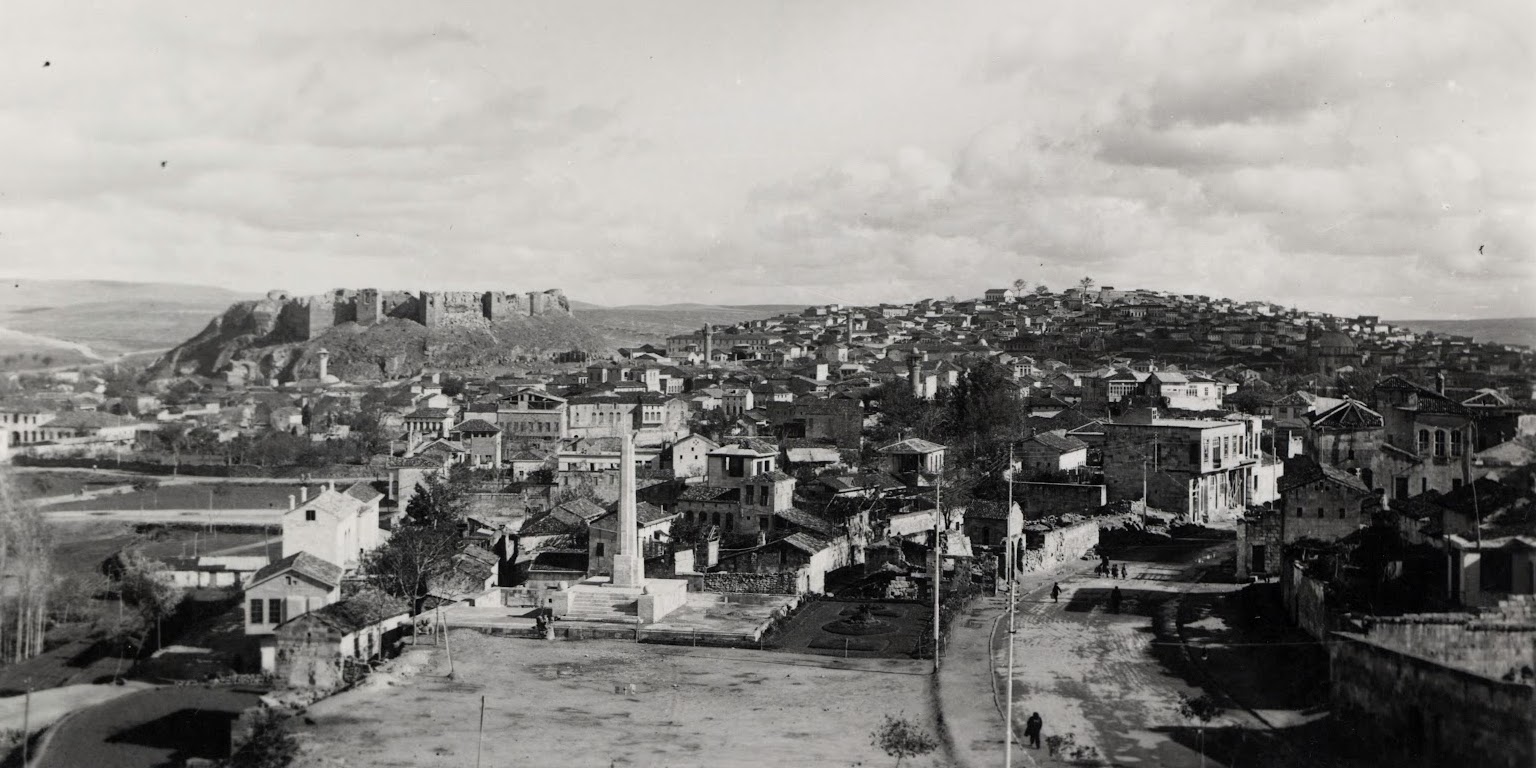The Economics of the Armenian Genocide in Aintab
hosted by Sam Dolbee
| What were the economic forces that drove the violence of the Armenian genocide? In this episode, historian Ümit Kurt speaks about his research on the role of property in the history of the dispossession and deportation of Aintab’s Armenian community. Despite archival silences, he reveals the central role of legal mechanisms and local propertied elites in these processes. In closing, he discusses the legacies of the “economics of genocide” into the present day, and how his research has been received.
 | Click for RSS Feed | 
|

|
What were the economic forces that drove the violence of the Armenian genocide? In this episode, historian Ümit Kurt speaks about his research on the role of property in the history of the dispossession and deportation of Aintab’s Armenian community. Despite archival silences, he reveals the central role of legal mechanisms and local propertied elites in these processes. In closing, he discusses the legacies of the “economics of genocide” into the present day, and how his research has been received.
Contributor Bios
 |
Ümit Kurt is a historian of the modern Middle East, with a research focus on the collapse of the Ottoman Empire. He is currently Assistant Professor in the School of Humanities, Creative Industry, and Social Sciences (History) and an affiliate of the Centre for the Study of Violence at the University of Newcastle, Australia. A Fellow of the Royal Historical Society, he is the author of award-winning book, The Armenians of Aintab: The Economics of Genocide in an Ottoman Province (Harvard University Press, 2021) and the co-author of The Spirit of the Laws: The Plunder of Wealth in the Armenian Genocide (Berghahn, 2017). He is now working on his third book manuscript project on the global patterns of mass violence in the Ottoman borderlands in the 1860s-1920s. |
 |
Sam Dolbee is Assistant Professor of History at Vanderbilt University, where he teaches classes on environment, disease, and the modern Middle East. His book Locusts of Power is out now with Cambridge University Press. |
Credits
Episode No. 561
Release Date: 26 February 2024
Recording location: Clovis, California
Recording location: Clovis, California
Sound production by Sam Dolbee
Images, bibliography, and captions courtesy of Ümit Kurt
Further Listening
 |
Sato Moughalian | 471
8/13/2020
|
David Ohannessian: Art, Exile, and the Legacies of Genocide |
 |
Ronald Grigor Suny | 356
4/7/18
|
"They Can Live in the Desert" |
 |
Heghnar Watenpaugh | 407
3/25/19
|
Survivor Objects and the Lost World of Ottoman Armenians |
 |
Ohannes Kılıçdağı | 382
10/2/18
|
Ottoman Armenians and the Politics of Conscription |
 |
Sylvia Alajaji | 461
4/23/20
|
Music and Silence in the Armenian Diaspora |
Images
 |
| Ali Cenani Bey, CUP deputy of Aintab, orchestrator of the deportation and genocide in the city. Courtesy of Mihran Minassian Collection. |
 |
| Ransacked and plundered houses in the Armenian quarter of Aintab. Courtesy of Gaziantep Kent Arşivi, Gaziantep Photograph and Postcard Collection. |
 |
| Aintab of the Gulesarian family, Courtesy of Alec Apelian. |
 |
| Ransacked and plundered houses in the Armenian quarter of Aintab. Courtesy of Gaziantep Kent Arşivi, Gaziantep Photograph and Postcard Collection. |
Select Bibliography
Kevork A. Sarafian (ed.), Badmo’wt’iwn Ah’nt’abi Hah’o’c [History of the Aintab Armenians], vols. I and II (Los Angeles: Union of the Armenians of Aintab, 1953).
Yervant Babaian (ed.), Badmo’wt’iwn Ah’nt’abi Hah’o’c, vol. III (Los Angeles: Union of the Armenians of Aintab / Abril Publishers, 1994).
Hrayr S. Karagueuzian and Yair Auron, A Perfect Injustice: Genocide and Theft of Armenian Wealth (New Brunswick, NJ: Transaction Publishers, 2009).
Kevork K. Baghdjian, La Confiscation, par le Gouvernement Turc, des Biens Arméniens—Dits “Abandonnes” (Montreal: K. K. Baghdjian, 1987).
Levon Vartan, Hah’gagan Dasnhinky ew Hah’ero’w Lqeal Ko’h’qery: Qnnagan Agnarg ysd T’rqagan Vawerakreri [The Armenian 1915 and the Aban- doned Properties of the Armenians: Critical Commentary According to Turkish Documents] (Beirut: Atlas, 1970).
Taner Akçam and Ümit Kurt, The Spirit of the Laws: The Plunder of Wealth in the Armenian Genocide (New York: Berghahn Books, 2015)
Kevork Yeghia Suakjian, Genocide in Trebizond: A Case Study of Armeno-Turkish Relations during the First World War (Lincoln: University of Nebraska Press, 1981).
Ümit Kurt, “Legal and Official Plunder of Armenian and Jewish Properties in Comparative Perspective: the Armenian Genocide and the Holo- caust,” Journal of Genocide Research 17, no. 3 (2015): 305–326.
Hilmar Kaiser, The Extermination of Armenians in the Diarbekir Region (Istanbul: Istanbul Bilgi University Press, 2014)
Max Bergholz, Violence as a Generative Force: Identity, Nationalism, and Memory in a Balkan Community (Ithaca, NY: Cornell University Press, 2016).

.jpg)













Comments
Post a Comment
Due to an overwhelming amount of spam, we no longer read comments submitted to the blog.